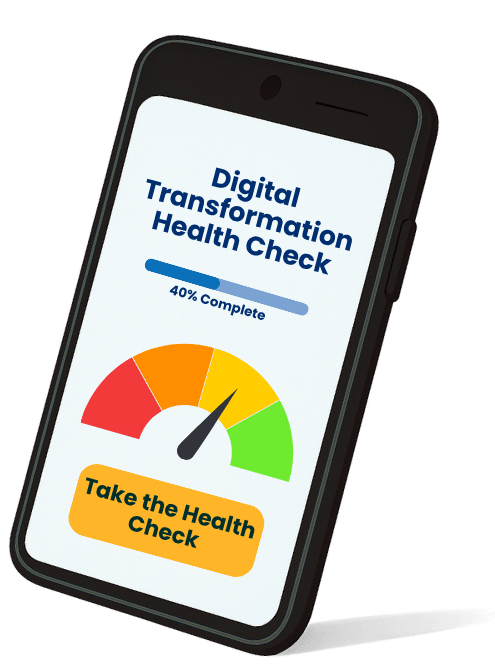Understanding your customers’ needs and preferences is crucial for staying ahead. Surveys offer a direct line to your audience’s thoughts, but crafting one that yields actionable insights can be a daunting task. Whether you’re looking to improve your product, refine your marketing strategy, or enhance customer satisfaction, effective survey help for businesses can be your secret weapon.
Navigating the myriad of survey tools and techniques can feel overwhelming, but fear not. With the right approach, you can unlock valuable data that propels your business forward. From selecting the perfect questions to analysing the data, this guide will walk you through everything you need to know to make surveys your ally in business growth. Let’s dive in and discover how you can harness the power of surveys to fuel your business’s success.
Understanding Your Customers’ Needs
When you’re delving into the heart of your business strategies, understanding your customers’ needs isn’t just beneficial—it’s essential. At Avrion, we’re dedicated to providing tools that help you gain deeper insights into your customer base. Your journey towards truly comprehending what drives your customers starts with tailored surveys that speak directly to their experiences and expectations.
Surveys serve as a bridge connecting you to your customers’ thoughts and preferences. However, it’s not merely about asking questions; it’s about asking the right questions. Effective surveys are those that are concise, clear, and compelling enough to encourage customer participation. They should not only address what you wish to know but should also resonate with the respondents, making them feel valued and understood.
Here’s a breakdown of how to craft surveys that can genuinely make a difference:
- Know Your Objective: Before crafting your survey, clearly define what you want to achieve. Is it to improve product features, refine your marketing strategy, or enhance customer service? Your objective guides the questions you’ll ask.
- Segment Your Audience: Not all customers have the same needs. Segmenting your audience allows you to tailor your surveys to specific groups, yielding more relevant and actionable insights.
- Choose the Right Platform: Leverage Avrion’s array of survey tools to engage with your audience where they are most comfortable, be it via email, social media, or directly on your website.
- Analyse Data Effectively: Collecting data is one thing; making sense of it is another. Use Avrion’s analytic tools to interpret your survey results, turning raw data into actionable business intelligence.
By integrating these practices, you’re not just conducting surveys; you’re engaging in meaningful conversations with your customers. This approach not only enhances their experience with your brand but also strengthens your market position by continuously evolving based on genuine customer feedback.
Remember, the goal is to build a sustainable relationship with your clientele. Listening to their needs, preferences, and feedback through well-structured surveys is a testament to your commitment to not just meet, but exceed their expectations. With Avrion’s suite of tools and services, tapping into what really matters to your customers has never been easier.
Crafting Effective Surveys
When you’re delving into the world of customer feedback, the power of crafting effective surveys can’t be overstated. It’s about asking the right questions in the right way—this is where your strategy comes to life, turning feedback into actionable insights.
Start with Clear Objectives: Before drafting your survey, pinpoint exactly what you want to achieve. Are you exploring general customer satisfaction, or are you more focused on feedback about a specific product or service? Establishing clear goals early on ensures that your survey is targeted and relevant.
Keep it Concise and Focused: The key to holding your audience’s attention is brevity. Lengthy surveys often lead to respondent fatigue, resulting in rushed answers or, worse, abandonment. Aim for short, focused questions that are easy to understand at first glance. At Avrion, we recommend keeping surveys under 10 minutes to maximise completion rates.
- Use simple, direct language
- Avoid jargon and technical terms
- Limit open-ended questions
Choose the Right Question Types: The format of your questions can significantly impact the quality of the data you gather. Mix multiple-choice questions with rating scales and occasional open-ended questions for depth. For instance, while multiple-choice questions can give you quantitative data, open-ended questions offer qualitative insights, painting a fuller picture of your customer’s experience.
Personalise the Experience: Tailoring questions based on the respondent’s previous answers can lead to more relevant data. With platforms like Avrion, you can design surveys that adapt in real-time, providing a personalised path through the survey for each respondent. This dynamic approach not only improves the user experience but also yields higher quality responses.
Test Your Survey: Before going live, it’s crucial to test your survey. This step helps you identify ambiguous questions, technical issues, or any aspect of the survey design that might skew results. Gathering a small group for a pilot test can offer valuable insights, allowing you to refine the survey for better outcomes.
Remember, the aim is not just to collect data but to collect data that is meaningful and actionable. Incorporating these strategies into your survey design process enhances your ability to make informed, data-driven decisions. By engaging your customers effectively, analysing responses diligently, and constantly refining your approach based on feedback, you’re well on your way to leveraging surveys as a pivotal tool in your business strategy.
Selecting the Perfect Questions
When diving into the creation of a survey, selecting the perfect questions becomes a critical task. This step is paramount as it directly impacts the quality of insights you’ll glean from your audience. To ensure each question serves a purpose, let’s explore some helpful strategies.
Understand Your Objective
Before drafting questions, be clear about what you’re aiming to discover. Each question should align with the broader goals of your survey. Are you looking to improve a product, gauge customer satisfaction, or understand buying habits? Knowing the answer will guide your question selection process.
Keep It Relevant and Concise
Surveys should respect the respondent’s time. Craft questions that are straightforward and easy to understand. Avoid adding fluff or any irrelevant questions that could distract from the main objectives. Remember, the goal is to keep respondents engaged from start to finish.
Choose the Right Question Type
Different question types elicit different kinds of feedback. Utilise a mix of closed-ended questions for quantitative data and open-ended questions for qualitative insights. For instance, multiple choice questions are great for gathering specific data, while open-ended questions offer deeper insight into the respondent’s opinion or experience.
Question Type Examples:
- Multiple Choice: For quick, specific answers
- Rating Scales: To measure intensity of feelings
- Open-Ended: For detailed, qualitative feedback
Personalise Where Possible
Personalisation can significantly improve response rates. Make use of the information you already have about your respondents to tailor questions. For businesses with an established customer database, integrating tools that offer CRM (Customer Relationship Management) functionalities, such as those provided by avrion.co.uk, can help personalise surveys at scale, making each respondent feel valued and understood.
Practical Considerations
Lastly, it’s essential to consider the practical side of question selection. Test your survey with a small group to ensure the questions are clear and the survey is user-friendly. This step can help identify any confusing questions or technical issues that could impact data quality or completion rates.
By taking the time to carefully select and craft your survey questions, you’re setting the stage for a wealth of insightful data that can drive your business forward. Keep your objectives in focus, be concise, and personalise the experience for your respondents. With these strategies in mind, you’re well on your way to creating an effective and engaging survey.
Analysing Survey Data
Once you’ve collected responses from your customer feedback survey, the next critical step is to dive into the data and extract meaningful insights. Analysing survey data may seem daunting at first, but with a structured approach, it’s more straightforward than you might think. Here’s how you can effectively analyse the data to inform your decision-making and drive improvements in your business.
Understand Your Objectives
Before delving into the numbers and charts, it’s crucial to revisit the objectives you set at the start. Understanding what you aim to learn from the survey will guide your analysis and help focus on the data that matters most. Whether it’s improving product features, enhancing customer service, or increasing customer satisfaction, keeping your goals in sight ensures your analysis remains relevant and actionable.
Employ the Right Analytical Tools
Leveraging the right tools can significantly streamline the data analysis process. On https://www.avrion.co.uk/, various software solutions are highlighted that can help businesses automate and simplify the analysis of survey data. From basic spreadsheet tools to more sophisticated analytics platforms, selecting the right software depends on your survey’s complexity and the depth of insights you’re aiming to achieve. These tools can help sort, filter, and visualise your data, making it easier to identify patterns, trends, and areas for improvement.
Look for Key Patterns and Trends
One of the primary goals of survey analysis is to identify patterns and trends that can inform business strategy. This could involve comparing responses across different demographic groups, tracking changes in customer satisfaction over time, or correlating certain behaviours with higher levels of engagement. By spotting these trends, you can tailor your products, services, and marketing efforts more effectively to meet your customers’ needs.
Act on the Insights
The ultimate aim of collecting and analysing survey data is to drive action. Once you’ve gleaned insights from your data, it’s essential to translate these into concrete steps that your business can take to improve. This might involve:
- Developing new products or services
- Refining current offerings
- Enhancing customer support channels
- Tailoring marketing strategies
Armed with data-driven insights, your business is better positioned to make informed decisions that can lead to significant improvements in customer satisfaction and overall business performance. Remember, analysis isn’t just a one-time activity but a continuous cycle of feedback, analysis, and improvement that keeps your business aligned with your customers’ evolving needs and preferences.
Leveraging Surveys for Business Growth
Surveys are a powerful tool for understanding your customer base and improving your business’s performance. When utilised correctly, they can uncover critical insights that drive strategic decisions and foster business growth. Here’s how you can make the most out of surveys to scale your business.
Recognise Customer Needs and Expectations
Your customers are the lifeline of your business. By regularly conducting surveys, you’re placing yourself in a prime position to listen to their voices. Identify changing trends, preferences, and areas needing improvement. This proactive approach allows you to adapt your offerings to meet customer expectations, thereby enhancing customer satisfaction and loyalty.
Improve Product and Service Offerings
Surveys provide you with direct feedback on your products and services. This feedback is invaluable for tweaking existing offerings and innovating new ones. Whether it’s about the quality of your product, service efficiency, or customer experience, use survey data to pinpoint areas that need refinement or a complete overhaul. Ensuring your offerings resonate with your target audience will lead to increased sales and market share.
Enhance the customer experience.
In today’s competitive landscape, customer experience can be a significant differentiator. Survey insights enable you to understand the customer journey from start to finish. Use this knowledge to streamline processes, reduce pain points, and make the customer’s interaction with your brand as smooth and pleasant as possible. A superior customer experience directly translates to higher retention rates and word-of-mouth referrals.
Drive Strategic Decision Making
Surveys aren’t just about gathering customer feedback; they’re a gold mine of data for strategic decision-making. By analysing survey responses, you can uncover trends and patterns that inform your business strategy. Whether it’s entering new markets, adjusting pricing models, or changing marketing tactics, data-driven decisions will always give you an edge over competitors.
Foster a Culture of Continuous Improvement
Embedding surveys into your business operations encourages a culture of continuous improvement. It shows your commitment to excellence and responsiveness to customer needs. Regular feedback loops help keep your business agile, enabling swift adaptations to market changes or customer feedback. This agility is crucial for sustained growth and competitiveness in any industry.
Conclusion
Harnessing the power of surveys opens up a world of possibilities for your business. It’s not just about gathering data; it’s about truly understanding what your customers want and how you can deliver it. With the insights you gain, you’re equipped to make informed decisions that can transform your offerings and elevate your market position. Remember, in today’s competitive landscape, staying attuned to customer feedback isn’t just an option—it’s a necessity. So, take the leap, embrace surveys, and watch as your business grows, innovates, and leads in ways you never thought possible.
Frequently Asked Questions
What role do surveys play in business growth?
Surveys are instrumental in understanding customer needs, enhancing products and services, improving customer experience, and informing strategic decisions. By gathering and analysing survey insights, businesses can align their offerings with customer expectations and drive growth.
How can surveys improve product and service quality?
Surveys collect customer feedback, which helps businesses identify areas of improvement and innovate accordingly. This leads to enhanced product and service quality, meeting or even exceeding customer expectations.
Do surveys contribute to customer satisfaction?
Absolutely. Surveys can significantly boost customer satisfaction by showing customers that their opinions are valued. Implementing changes based on feedback makes customers feel heard and appreciated, thereby increasing loyalty and satisfaction.
Can surveys influence business strategy?
Yes, surveys provide valuable data that can guide strategic decision-making. Insights gleaned from surveys help businesses understand market trends, customer preferences, and areas for innovation, shaping effective and informed strategies.
How do surveys impact sales and market share?
By adapting offerings based on customer feedback and improving the overall customer experience, businesses can attract and retain more customers. This leads to increased sales and a stronger market presence.
Are surveys important for continuous improvement?
Surveys are a cornerstone for fostering a culture of continuous improvement. They offer a systematic way to collect insights and feedback, which can be used to make ongoing adjustments and improvements, keeping businesses competitive and innovative.
How do surveys enhance customer experience?
Through surveys, businesses can pinpoint specific aspects of their service or product that customers enjoy or dislike. Acting on this feedback allows companies to refine their customer experience, making it more personalised and satisfying.
Further information on how surveys help businesses
Now that you know how surveys help businesses, to find out more about Survey Mechanics and see how it could help your business, check out our Survey Mechanics page.
If you have any questions about how surveys help businesses, or would like to speak to someone from the Avrion team, contact us on one of the following:
- Tel: +44 (0)1992 661244
- Email: enquiries@avrion.co.uk
- Follow us on LinkedIn
- Subscribe to our YouTube channel
- Contact us here



